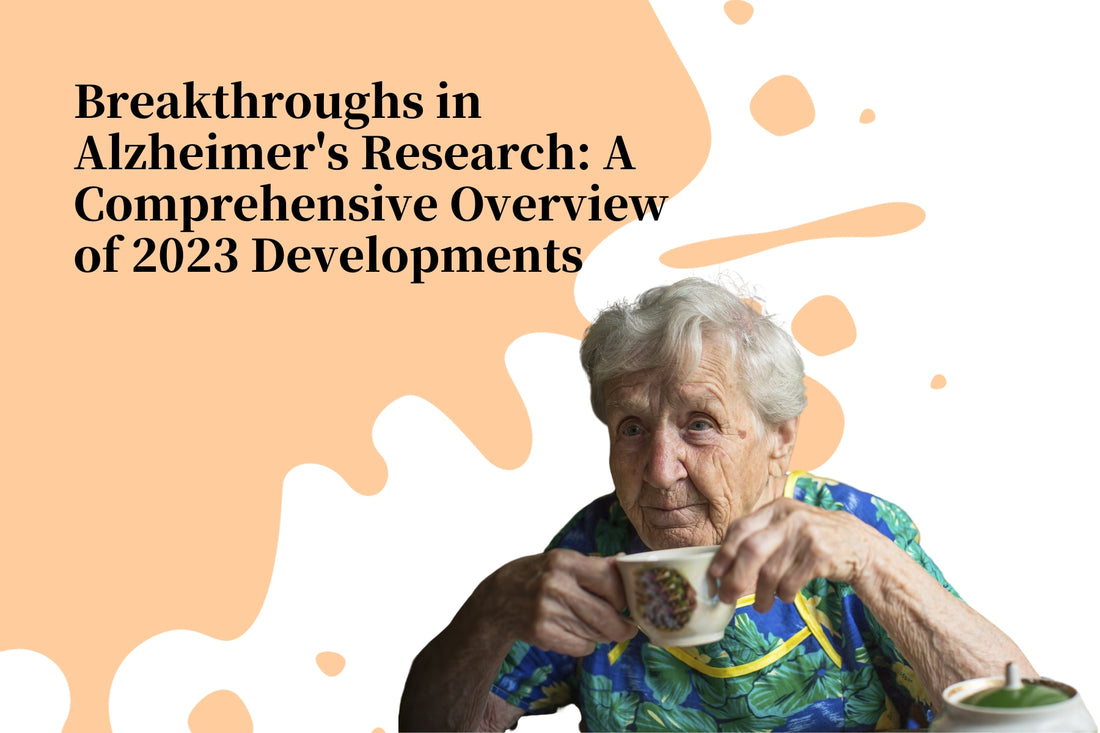Breakthroughs in Alzheimer's Research: A Comprehensive Overview of 2023 Developments
02 Jan 2024
0 Comments
In the rapidly evolving landscape of Alzheimer's disease research, the year 2023 witnessed significant milestones, transforming our understanding of diagnosis and treatment. This summary explores the key highlights from the International Alzheimer's Disease Conference and groundbreaking advancements in the field.
1. Revolutionizing Diagnosis:
The release of updated Alzheimer's disease guidelines at the 2023 conference marked a pivotal moment. Departing from the traditional approach, the guidelines shifted the focus from symptomatic assessment to the detection of amyloid protein in the brain. While previous methods involved costly and invasive procedures, the latest guidelines propose a blood test as a revolutionary means of diagnosis.
2. Blood Test Breakthrough:
In 2018, the concept of blood testing for Alzheimer's was met with skepticism. However, with technological advancements, 2023 saw a consensus on its viability. Though yet to be officially implemented in hospitals, the blood test promises an affordable and less invasive alternative, with potential costs anticipated to decrease significantly upon mass production.
3. Early Treatment:
On January 6, 2023, a groundbreaking Alzheimer's drug, Renkadan, was conditionally approved by the FDA. This drug, alongside Adudan, represents a new era in Alzheimer's treatment, offering a more targeted approach compared to conventional medications. While the current cost may seem high, projections suggest a gradual decrease, making it more accessible in the near future.
4. Vision for the Future:
Envisioning a future where Alzheimer's is controlled akin to hypertension and diabetes, the article discusses the potential for early diagnosis and treatment. It emphasizes the importance of fighting on the first line of defense through lifestyle adjustments, mental exercises, physical activities, diet control, and management of key risk factors.
In summary, the progress made in 2023 sets the stage for a transformative era in Alzheimer's disease management. By highlighting breakthroughs in diagnosis, the promise of blood testing, advancements in early treatment, and the vision for a controlled future, aims to inform and inspire hope in the face of Alzheimer's challenges.
1. Revolutionizing Diagnosis:
The release of updated Alzheimer's disease guidelines at the 2023 conference marked a pivotal moment. Departing from the traditional approach, the guidelines shifted the focus from symptomatic assessment to the detection of amyloid protein in the brain. While previous methods involved costly and invasive procedures, the latest guidelines propose a blood test as a revolutionary means of diagnosis.
2. Blood Test Breakthrough:
In 2018, the concept of blood testing for Alzheimer's was met with skepticism. However, with technological advancements, 2023 saw a consensus on its viability. Though yet to be officially implemented in hospitals, the blood test promises an affordable and less invasive alternative, with potential costs anticipated to decrease significantly upon mass production.
3. Early Treatment:
On January 6, 2023, a groundbreaking Alzheimer's drug, Renkadan, was conditionally approved by the FDA. This drug, alongside Adudan, represents a new era in Alzheimer's treatment, offering a more targeted approach compared to conventional medications. While the current cost may seem high, projections suggest a gradual decrease, making it more accessible in the near future.
4. Vision for the Future:
Envisioning a future where Alzheimer's is controlled akin to hypertension and diabetes, the article discusses the potential for early diagnosis and treatment. It emphasizes the importance of fighting on the first line of defense through lifestyle adjustments, mental exercises, physical activities, diet control, and management of key risk factors.
In summary, the progress made in 2023 sets the stage for a transformative era in Alzheimer's disease management. By highlighting breakthroughs in diagnosis, the promise of blood testing, advancements in early treatment, and the vision for a controlled future, aims to inform and inspire hope in the face of Alzheimer's challenges.
Tags:


